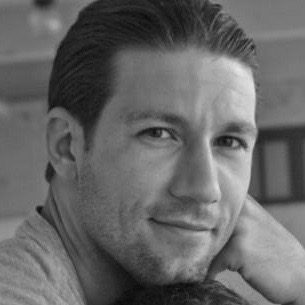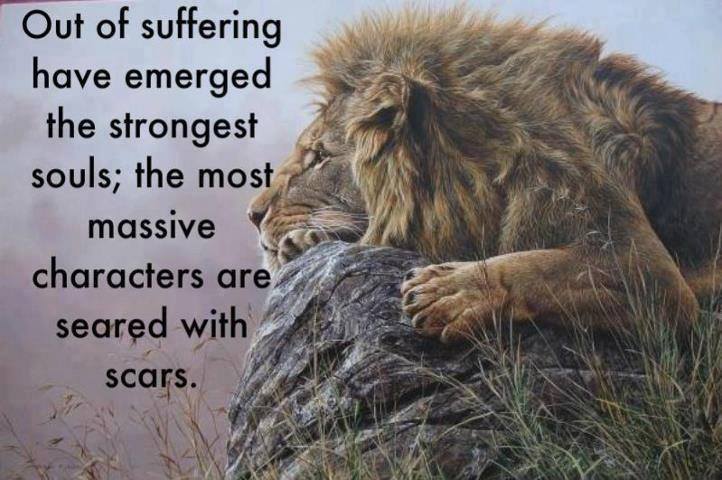
Nick Carmody
JD, MS Psych Psychotherapist
Adversity Doesn't Build Character, It Exposes it....

Trauma / PTSD
The struggle for a lot of people when they’ve experienced what is or eventually becomes an “invisible injury” is that other people can’t understand or relate to what they can’t see. In 2016, I met a woman and had quite a few long email exchanges about the effect that Lyme disease had on her life and relationships. I had made a similar connection between TBI and PTSD when listening to a young guy who was in an abnormal psych class at a community college (that I had to take as a pre-requisite to apply for a Psy.d program) give a presentation on his PTSD. As I listened to him, I was struck by the effects of what I described as “invisible injuries”, which also resonated with the woman’s Lyme disease experience. Below is something I wrote during the first class for of my Masters program in August of 2016 where I connected all the dots, and even explained in terms of how personality traits and predispositions play into family/friends/spouses not being able to understand the abstract nature of invisible injuries.
One of the most difficult aspects of dealing with brain injuries is that even if there initially were physically observable wounds, the injury to the brain can, and usually does, take A LOT longer to heal than the cut, blunt force trauma, or even puncture wound does. As a result, there can be a relatively short window of time where the injury is visible, and a much longer period of time (sometimes indefinitely) where the injury is essentially invisible.
As far as the invisible injury revelation, I came to that conclusion by observing and listening to an Iraq war veteran talk about the effects of PTSD on his life and relationships. It was during` an abnormal psychology class that I had to take as a pre-requisite to applying to DU’s Psy.D program. I realized that what a lot of the guys (and women) deal with is the fact that since there’s no visible bullet wound, missing limb, or physical scar tissue…….the people in their life have nothing to point to or observe that allows them to make the simple cause/effect calculations (which for many of them is all they’re capable of). Without getting too convoluted or too far off on this tangent, in a Myers-Briggs context, there are certain personality predispositions, or combinations of predispositions that are especially drawn to the military, or to law enforcement, etc. And those personality predispositions tend to be more comfortable dealing with concrete, black and white, absolutisms. They’re uncomfortable with, and don’t deal well with abstraction or the infinite number of nuanced shades of grey that exist in life. So taking this back to the guy with the PTSD, it’s easy to see why people in the military culture, as well as the people who are drawn to those personalities in the military culture (wives, etc.) would struggle with someone who comes home with an invisible injury. There’s no “concrete”, tangible scar or injury. It’s very much an “abstract” injury that requires the type of mind that is broad, theoretical, and intuitive in it’s understanding. For most people, their limited understanding and perspective is that the person they loved left in one piece, was gone for a year, and then came home in one piece. And now that he/she has, they expect everything to pick up right where THEIR life with that person left off, and when it doesn’t it becomes an inconvenience to them. This is due in part to the inability of their concrete, black/white predispositions to conceptualize what the military person has experienced overseas (that whole can’t/don’t see/know what they can’t/don’t see/know phenomenon), and possibly be partly due to their inability/unwillingness to step outside of themselves and their self-absorption to not make it all about them.
Most of what I wrote above are observations that were running through my head as I listened to the young veteran’s short PTSD presentation. My presentation was on the effects TBI, and my experiences with it. It was supposed to be 10 minutes, and despite being a nervous wreck (more on that below) I ended being up there for 35 minutes because of the questions being asked by the professor, as well as my tendency to think/speak/write in detail. I actually found myself making many of the PTSD-TBI connections, and compared the experiences and the reactions of other people to our experiences while I was up there giving my presentation.
One of the dynamics that I observed was that when I was no longer able to be who or what I had always been, and/or provide other people with what I had always provided them with, it became a huge inconvenience for them. For many stretches of my life, I had almost been larger than life in the things that I had done or the way that I had done them. People looked up to me because I was able to don superman’s cape from time to time. And a big part of being able to do that included making other people the focus. This was especially true of my narcissist ex-wife. When, I was no longer willing and able to continue to accommodate an existence where the world revolved around her, it was inconvenient, and she became resentful…..and ultimately acted out vindictively. She also has the personality predispositions similar to what I described above with the military spouses/inner circle who see the world in concrete, black and white terms. In December of 2013, I came across a Ted Talks video of Brene Brown on “shame”, and I found an exchange she described at the end of the video be especially relevant. Here is an excerpt:
“[16:22] For men, shame is not a bunch of competing, conflicting expectations. Shame is one, do not be perceived as what? Weak. I did not interview men for the first four years of my study. It wasn’t until a man looked at me after a book signing, and said, “I love what say about shame, I’m curious why you didn’t mention men.” And I said, “I don’t study men.” And he said, “That’s convenient.”
[16:49] (Laughter)
16:52 And I said, “Why?” And he said, “Because you say to reach out, tell our story, be vulnerable. But you see those books you just signed for my wife and my three daughters?” I said, “Yeah.””They’d rather me die on top of my white horse than watch me fall down. When we reach out and be vulnerable, we get the shit beat out of us. And don’t tell me it’s from the guys and the coaches and the dads. Because the women in my life are harder on me than anyone else.”
…
[18:54] When he [meaning a researcher interviewing subjects] asked about men, what do men in this country need to do to conform with male norms, the answers were: always show emotional control, work is first, pursue status and violence.]”
Although my situation and causes are not nearly as dramatic or heroic, when I had my injuries, I “fell down”. And for many of the returning military personnel, (real or imagined) they might have been better off “dying on their white horse” (in battle) than coming home in the condition that they did, and having to deal with a lack of receptiveness/sensitivity, and the resulting spiral/decline.